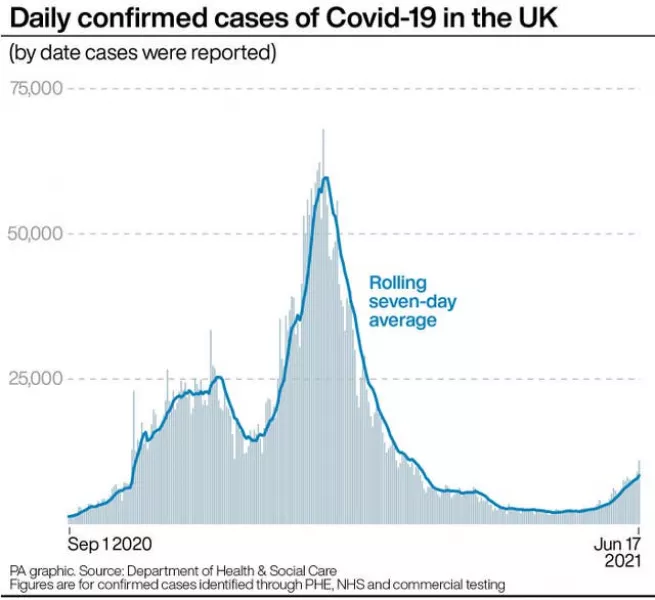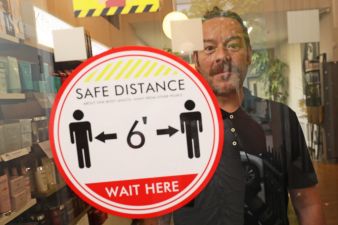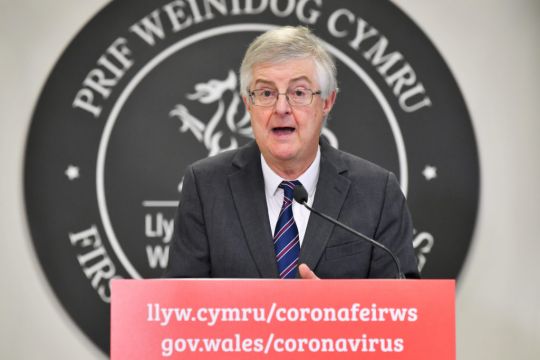The UK is at the “pre-peak stage of a third wave” of coronavirus, Welsh First Minister Mark Drakeford has warned.
Mr Drakeford said eight out of 10 new cases of Covid-19 in Wales are believed to be from the Delta variant first identified in India, and that figures show the country is once again facing a “serious public health situation”.
Wales has joined Northern Ireland, England and Scotland in postponing plans to relax restrictions due to fears of the impact of the variant on hospital admissions.
Scientific advisers believe a four-week delay in easing rules will be enough time to determine whether vaccinations have broken the link between getting ill from the disease and needing hospital treatment.

However, Mr Drakeford told the PA news agency that the delay will not be extended indefinitely “in search of perfection” from scientists if their findings are inconclusive.
At Friday’s Welsh government press briefing in Cardiff, Mr Drakeford spelled out the effect the faster-spreading strain of Covid-19 is having on the country.
“In just a few weeks, the Delta variant has entered Wales and spread quickly throughout the country,” he said.
“There is a sustained and accelerating pattern of transmission, not just in the north and south-east of Wales but in all parts of the country.
“That means that we are, once again, facing a serious public health situation. Our scientific advisers believe that the United Kingdom is now at the pre-peak stage of a third wave of this pandemic.”
Here's the slides from today's press conference ⬇️ pic.twitter.com/TyiU1PRNzv
— Welsh Government 🏴🇺🇦 (@WelshGovernment) June 18, 2021
Advertisement
Mr Drakeford said Wales’s case rate has more than doubled in a fortnight, to 23.6 cases per 100,000 people, with two local authority areas experiencing rates above 50 cases per 100,000.
There were 488 confirmed cases of the variant in Wales on Thursday, he said, with the country “two to three weeks” behind England and Scotland, where tens of thousands of cases have been confirmed along with reports of increased hospital admissions.
He said the Welsh government’s postponement of further easements will allow for more people to be vaccinated and help Wales, which still has the lowest Covid rates in the UK, “manage the impact of this new wave of infections”.
“A four-week delay could help to reduce the peak number of daily hospital admissions by up to half,” Mr Drakeford said.
“This is at a time when the NHS is very busy in Wales supporting all our healthcare needs, not just treating coronavirus.”
Mr Drakeford denied that Wales is only delaying further relaxations because England and Scotland have already done so, but admitted he is receiving advice on actions “in a wider context of the decisions that are made by other administrations”.
“Now is the moment for us to pause, to take advantage of the fact that we’re in a better position than either Scotland, Northern Ireland, or England. To take advantage of the fact that our vaccination programme has pushed further ahead than any other, and to build those defences up higher,” he added.
From Monday 21 June, weddings can take place indoors in regulated premises like hotels, with max numbers allowed subject to social distancing.
We know many of you made the difficult decision to postpone your special day due to the pandemic.
Please enjoy and #KeepWalesSafe ❤️ pic.twitter.com/12QJRKceo6— Welsh Government 🏴🇺🇦 (@WelshGovernment) June 18, 2021
Mr Drakeford said some “smaller amendments” will be made to restrictions in Wales to make them easier for people to understand.
Updated guidance will be published on hospital visits, including the use of testing, as well as a statement about the use of face masks in schools.
But, earlier on Friday, Mr Drakeford told PA that if a definitive answer cannot be given about the effect of vaccines on hospital admissions, then further easing of restrictions will need to go ahead.
“I agree that you cannot, in the end, delay everything in the search for perfection in terms of data,” he said.
“But what we are quite clearly told by our scientific advisers, as well as others, is that this four weeks will allow us to get a sufficiently good handle on the extent to which a relationship between falling ill and needing hospitalisation has been modified by the vaccine.

“Then we will make a calculation about how much headroom we have, as we always do, to take further steps.”
Rules in Wales were last relaxed on June 7th with outdoor events with up to 10,000 people allowed to resume and other events, such as concerts, football matches and sporting activities, able to recommence for up to 4,000 people standing and 10,000 people sitting.
The regulations will be reviewed again on July 15th.







